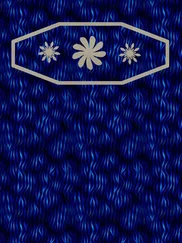Robert Heinlein - Sixth Column
Здесь есть возможность читать онлайн «Robert Heinlein - Sixth Column» весь текст электронной книги совершенно бесплатно (целиком полную версию без сокращений). В некоторых случаях можно слушать аудио, скачать через торрент в формате fb2 и присутствует краткое содержание. ISBN: , Жанр: Фантастика и фэнтези, на английском языке. Описание произведения, (предисловие) а так же отзывы посетителей доступны на портале библиотеки ЛибКат.
- Название:Sixth Column
- Автор:
- Жанр:
- Год:неизвестен
- ISBN:0-671-72026-0
- Рейтинг книги:3 / 5. Голосов: 1
-
Избранное:Добавить в избранное
- Отзывы:
-
Ваша оценка:
- 60
- 1
- 2
- 3
- 4
- 5
Sixth Column: краткое содержание, описание и аннотация
Предлагаем к чтению аннотацию, описание, краткое содержание или предисловие (зависит от того, что написал сам автор книги «Sixth Column»). Если вы не нашли необходимую информацию о книге — напишите в комментариях, мы постараемся отыскать её.
Sixth Column — читать онлайн бесплатно полную книгу (весь текст) целиком
Ниже представлен текст книги, разбитый по страницам. Система сохранения места последней прочитанной страницы, позволяет с удобством читать онлайн бесплатно книгу «Sixth Column», без необходимости каждый раз заново искать на чём Вы остановились. Поставьте закладку, и сможете в любой момент перейти на страницу, на которой закончили чтение.
Интервал:
Закладка:
"And now my Lord Shaam bids you sleep." The green light flared up to greater brilliance; the Prince went limp.
"Whew!" sighed Ardmore. "I'm glad that's over. Nice cooperation, Wilkie -- I was never cut out to be an actor." He hoisted up one side of his robes and dug a package of cigarettes out of his pants-pocket. "Better have one," he offered. "We've got a really dirty job ahead of us."
"Thanks," said Wilkie, accepting the offer. "Look, Chief -- is it really necessary to kill everybody here? I don't relish it."
"Don't get chicken, son," admonished Ardmore with an edge in his voice. "This is war -- and war is no joke. There is no such thing as humane war. This is a military fortress we are in; it is necessary to our plans that it be reduced completely. We couldn't do it from the air because the plan requires keeping the Prince alive."
"Why wouldn't it do just as well to leave them unconscious?"
"You argue too much. Part of the disorganization plan is to leave the Prince still alive and in command, but cut off from all his usual assistants. That will create a turmoil of inefficiency much greater than if we had simply killed him and let their command devolve to their number-two man. You know that. Get on with your job."
With the lethal ray from their staffs turned to maximum power, they swept the walls and floor and ceiling, varying death to Asiatics for hundreds of feet -- through rock and metal, plaster and wood. Wilkie did his job with white-lipped efficiency.
Five minutes later they were carving the stratosphere for home -- the Citadel.
Eleven other scout cars were hurrying through the night. In Cincinnati, in Chicago, in Dallas, in major cities across the breadth of the continent they dove out of the darkness, silencing opposition where they found it, and landed little squads of intent and resolute men. In they went, past sleeping guards, and dragged out local senior officials of the PanAsians provincial governors, military commanders, the men on horseback. They dumped each unconscious kidnapped Oriental on the roof of the local temple of Mota, there to be received and dragged down below by the arms of a robed and bearded priest.
Then to the next city to repeat it again, as long as the night lasted.
CHAPTER ELEVEN
Calhoun buttonholed Ardmore almost as soon as he was back in the Citadel. "Major Ardmore," he announced, clearing his throat, "I have waited up to discuss a matter of import with you."
This man, Ardmore thought, can pick the damnedest times for a conference. "Yes?"
"I believe you expect a rapid culmination of events?"
"Things are coming to a head, yes."
"I presume the issue will be decided very presently. I have not been able to get the details I want from your man Thomas -- he is not very cooperative; I fail to see why you have thrust him up to the position of speaking for you in your absence -- but that is beside the point," Calhoun conceded with a magnanimous gesture. "What I wanted to say is this: Have you given any thought to the form of government after we drive out the Asiatic invader?"
What the devil was the man getting at? "Not particularly -- why should I? Of course, there will have to be a sort of provisional interim period, military government of sorts, while we locate all the old officials left alive and get them back on the job and arrange for a national election. But that ought not to be too hard -- we'll have the local priests to work through."
Calhoun's eyebrows shot up. "Do you really mean to tell me, my dear man, that you are seriously contemplating returning to the outmoded inefficiencies of elections and all that sort of thing?"
Ardmore stared at him. "What else are you suggesting?"
"It seems obvious. We have here a unique opportunity to break with the stupidities of the past and substitute a truly scientific rule, headed by a man chosen for his intelligence and scientific training rather than for his skill in catering to the prejudices of the mob. "
"Dictatorship, eh? And where would I find such a man?" Ardmore's voice was disarmingly, dangerously gentle.
Calhoun did not speak, but indicated by the slightest of smug self-deprecatory gestures that Ardmore would not have far to look to find the right man.
Ardmore chose not to notice Calhoun's implied willingness to serve. "Never mind," he said, and his voice was no longer gentle, but sharp. "Colonel Calhoun, I dislike to have to remind you of your duty -- but understand this: you and I are military men. It is not the business of military men to monkey with politics. You and I hold our commissions by grace of a constitution, and our sole duty is to that constitution. If the people of the United States want to streamline their government, they will let us know!
"In the meantime, you have military duties, and so do I. Go ahead with yours."
Calhoun seemed about to burst into speech. Ardmore cut him short. "That is all. Carry out your orders, sir!"
Calhoun turned abruptly and left.
Ardmore called his Chief of Intelligence to him. "Thomas," he said, "I want a close, but discreet, check kept on Colonel Calhoun's movements."
"Yes, sir."
"The last of the scout cars are in, sir."
"Good. How does the tally stand now?" Ardmore asked.
"Just a moment, sir. It was running about six raids to a ship -- with this last one that makes a total of ... uh ... nine and two makes eleven-seventy-one prisoners in sixty-eight raids. Some of them doubled up...
"Any casualties?"
"Only to the PanAsians --"
"Damn it that's what I meant! No, I mean to our men, of course."
"None, Major. One man got a broken arm when he fell down a staircase in the dark."
"I guess we can stand that. We should get some reports on the local demonstrations -- at least from the East coast cities -- before long. Let me know."
"I will. "
"Would you mind telling my orderly to step in as you leave? I want to send for some caffeine tablets, better have one yourself; this is going to be a big day."
"A good notion, Major." The communications aide went out.
In sixty-eight cities throughout the land, preparations were in progress for the demonstrations that constituted Phase 2 of Disorganization Plan IV. The priest of the temple in Oklahoma City had delegated part of his local task to two men, Patrick Minkowski, taxi driver, and John W. (Jack) Smyth, retail merchant. They were engaged in fitting leg irons to the ankles of the Voice of the Hand, PanAsian administrator of Oklahoma City. The limp, naked body of the Oriental lay on a long table in a workshop down under the temple.
"There," announced Minkowski, "that's the best job of riveting I can do without heating tools. It'll take him a while to get it off, anyway. Where's that stencil?"
"By your elbow. Captain Isaacs said he'd weld those joints with his staff after we finished; I wouldn't worry about them. Say, it seems odd to call the priest Captain Isaacs, doesn't it? Do you think we're really in the army -- legally, I mean?"
"I wouldn't know about that -- and as long as it gives me a chance to take a crack at those flat-faced apes, I don't care. I suppose we are, though -- if you admit that Isaacs is an army officer, I guess he can take recruits. Look -- do we put this stencil on his back or on his stomach?"
"I'd say to put it on both sides. It does seem funny, though, about this army business, I mean. One day you're going to church; the next you're told it's a military outfit, and they swear you in."
"Personally, I like it," commented Minkowski. "Sergeant Minkowski -- it sounds good. They wouldn't take me before on account o' my heart. As for the church part, I never took any stock in this great God Mota business, anyhow; I came for the free food and the chance to breathe in peace." He removed the stencil from the back of the Asiatic; Smyth commenced filling in the traced design of an ideograph with quick-drying indelible paint. "I wonder what that heathen writing means?"
Читать дальшеИнтервал:
Закладка:
Похожие книги на «Sixth Column»
Представляем Вашему вниманию похожие книги на «Sixth Column» списком для выбора. Мы отобрали схожую по названию и смыслу литературу в надежде предоставить читателям больше вариантов отыскать новые, интересные, ещё непрочитанные произведения.
Обсуждение, отзывы о книге «Sixth Column» и просто собственные мнения читателей. Оставьте ваши комментарии, напишите, что Вы думаете о произведении, его смысле или главных героях. Укажите что конкретно понравилось, а что нет, и почему Вы так считаете.











